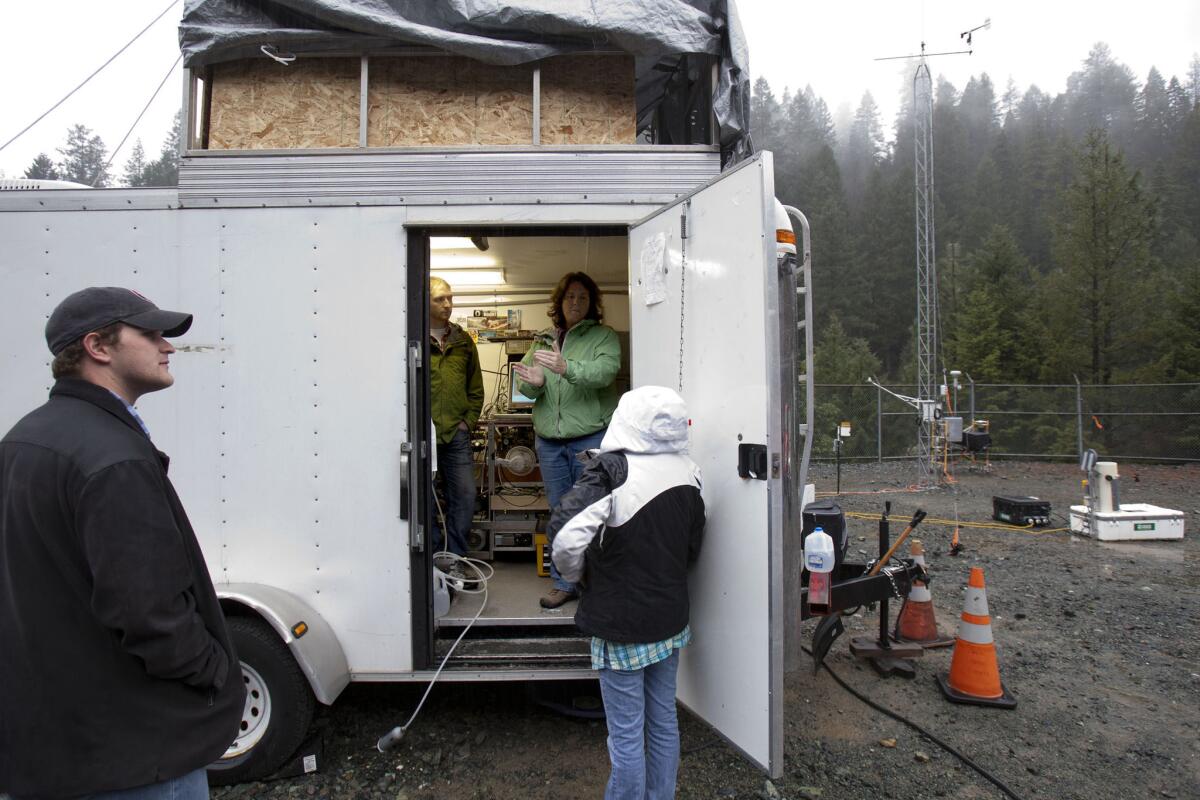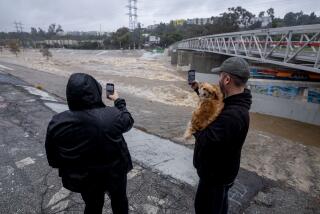UC San Diego center awarded $20 million for climate research

A UC San Diego chemistry center has won $20 million from the National Science Foundation to continue pioneering research on the effects of tiny atmospheric particles on climate.
The award, announced Monday, follows a much smaller NSF grant that helped establish the Center for Aerosol Impacts on Climate and the Environment at the university three years ago.
Distributed over five years, the funding will underwrite research by a multidisciplinary team of scientists from various institutions who are examining the role that microscopic atmospheric particles called aerosols play in precipitation and other aspects of climate.
The chemically complex particles, which include dust, sea spray and soot, can be transported around the globe, shaping the weather thousands of miles from their origin by seeding clouds and absorbing or reflecting sunlight.
Center director Kimberly Prather, a UCSD atmospheric chemist, was a co-author of a recently published scientific paper that found that high-altitude dust blown across the Pacific Ocean from Asian and African deserts increased precipitation levels in the Sierra Nevada.
Center researchers have re-created wave conditions in an experimental tank filled with water pumped from the Pacific to measure the chemical properties of sea spray, which is far more complex than just water and salt.
Scientists hope the aerosols research can also help improve climate change models, which are better at projecting temperatures than precipitation patterns.







